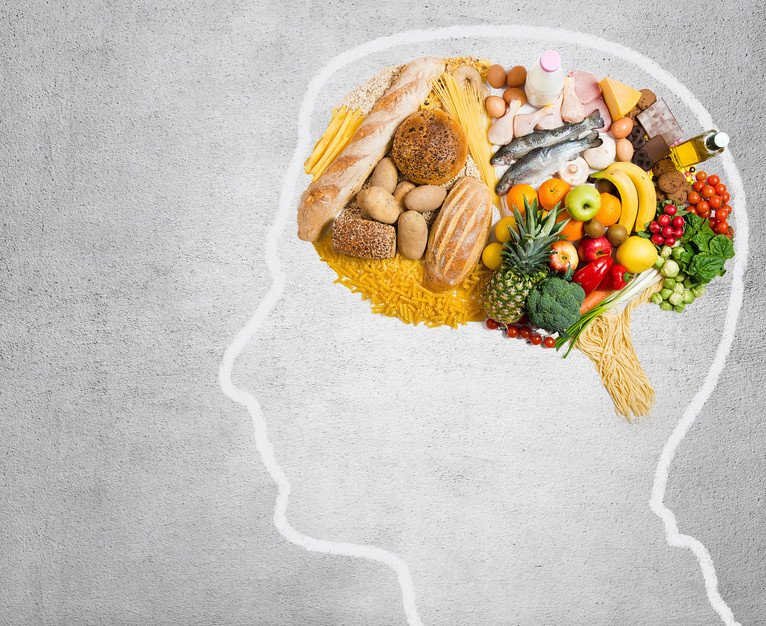You Are What You Eat - The Effect of Food in the Brain
Scientists have been able to show that what we eat is a viable way to avoid, treat, or even lessen mental illnesses. According to records, over 200 million people suffer from anxiety, and over 300 million people suffer from depression worldwide. With the rise in these numbers, scientists have been looking for new ways to prevent and treat anxiety as well as depression. In this post, we'll delve into what scientists are uncovering about the intriguing connection between what we eat and our mental well-being.
The relationship between food and mental health is not a new concept. Throughout history, various dietary practices have been explored, often with surprising consequences. Take, for instance, Anorexia Mirabilis, an ancient practice of extreme fasting that aimed to elevate the soul but led to hallucinations and altered mental states due to chronic starvation.

Flickr
Another period were food was checked again was during the Renaissance period where there was a different way of dressing and sense of fashion and people wanted to become skinny so they can fit into the trend. Luigi Cornaro, in the 16th century, famously documented his weight loss journey, advocating for a diet of 12 ounces of food and 14 ounces of wine daily. Giacoma Castelvetro in 1614 laid the foundation for the Mediterranean diet we know today.
Fast forward to the 19th century, when fashion icons like Lord Byron and Elisabeth Amelie Wittelsbach, Empress of Austria, known as Empress Sissi popularized extreme diets. Lord Baron adopted a vinegar-based diet, while Empress Sissi relied on fasting and rigorous exercise to maintain her figure. However, these diet-centric lifestyles underwent a transformation with the industrialization of the 20th century, giving rise to the prevalence of junk food and obesity as major health concerns.
In the process of scientists trying to find out which diet would keep us in shape, they discovered something else. In a study involving 45,000 participants, dietary questionnaires were used to investigate the connection between diet and mental well-being. Researchers discovered that certain diets were associated with a higher risk of depression. Remarkably, the Mediterranean diet, popularized by Giacoma Castelvetro, emerged as a lower-risk option for mental health issues.
People who skip breakfast, and have inconsistent lunch and dinner are shown to have certain mental disturbances, and this is because there is not enough food to give the brain the energy it needs. The brain relies on a steady supply of energy, nutrients, and essential fatty acids to function optimally. Skipping meals or having inconsistent eating patterns can disturb this delicate balance, affecting the brain's energy levels and neurotransmitter production.
The journey of food through our body plays a pivotal role. As food is digested, it is broken down and absorbed, nourishing different organs, including the brain. Brain cells and neurons require specific polyunsaturated fatty acids and Omega-3 fatty acids to grow and maintain proper communication.
The bacteria in the gut produce vitamins and amino acids as they interact with food thereby releasing the vitamins and amino acids to the brain, helping the brain to produce more neurotransmitters and it also impacts serotonin. Research has found links between certain mental disorders and their association with lesser, diverse, or unbalanced bacteria in the guts.
Scientific research has shown that certain mental disorders are linked to an imbalance or reduction in specific gut bacteria, such as Bifidobacterium Sp and Lactobacillus Sp. Conversely, an increase in bacteria like Morganella Sp and Klebsiella Sp has been associated with depression, often leading to gut inflammation and "leaky gut," sending stress signals to the brain.
However, the complex relationship between diet and mental health extends beyond the gut microbiome. Western diets high in refined sugar, saturated fats, and salts have been linked to gut inflammation, ultimately increasing the risk of depression, anxiety, and ADHD. On the other hand, the Mediterranean diet, characterized by fruits, vegetables, whole grains, olive oil, chicken, and fish, boasts unsaturated fatty acids and polyphenols, which promote brain health and enhance mood.
A study showed that people who followed the Mediterranean diet had a 42% reduced risk of developing depression. Another study where a fecal transplant was done between patients with a healthy gut microbiome and one with a less healthy gut microbiome showed that there were changes in the gut microbiome helping to reduce depression.
As scientists continue to unravel these connections, it becomes increasingly clear that what we eat has a profound impact on our mental well-being making the saying "we are what we eat" true.
Post Reference
- https://www.pubmed.ncbi.nlm.nih.gov/32340112/
- https://www.science.org/content/article/gut-microbe-linked-depression-large-health-study
- https://www.skyterrawellness.com/history-of-dieting/
- https://www.intechopen.com/chapters/67467
- https://www.ncbi.nlm.nih.gov/pmc/articles/PMC6170050/pdf/ms112_p0111.pdf
- https://www.frontiersin.org/articles/10.3389/fpsyg.2020.564413/full
- https://www.psychiatrictimes.com/view/effects-of-nutrition-on-mood-variability-in-bipolar-disorder
- https://pubmed.ncbi.nlm.nih.gov/9322586/
- https://www.frontiersin.org/articles/10.3389/fnut.2022.871238/full
- https://www.nature.com/articles/ejcn2012193

Thanks for your contribution to the STEMsocial community. Feel free to join us on discord to get to know the rest of us!
Please consider delegating to the @stemsocial account (85% of the curation rewards are returned).
Thanks for including @stemsocial as a beneficiary, which gives you stronger support.
Didn't know that our gut bacteria had such a great correlation with our mental health.
I agree with the importance of having a healthy breakfast first thing in the morning. I find that when I don't eat in the first hours of me awakening, I'm a much worse mood than when I do.
There are a lot of things that we do not know affect our life, but we tend to blame other factors. Actually, just like I said, we are what we eat, and what out guts tell our brain we are 😂
Time to pay more attention to what our tummy is telling us :)
Thank you for the great article.